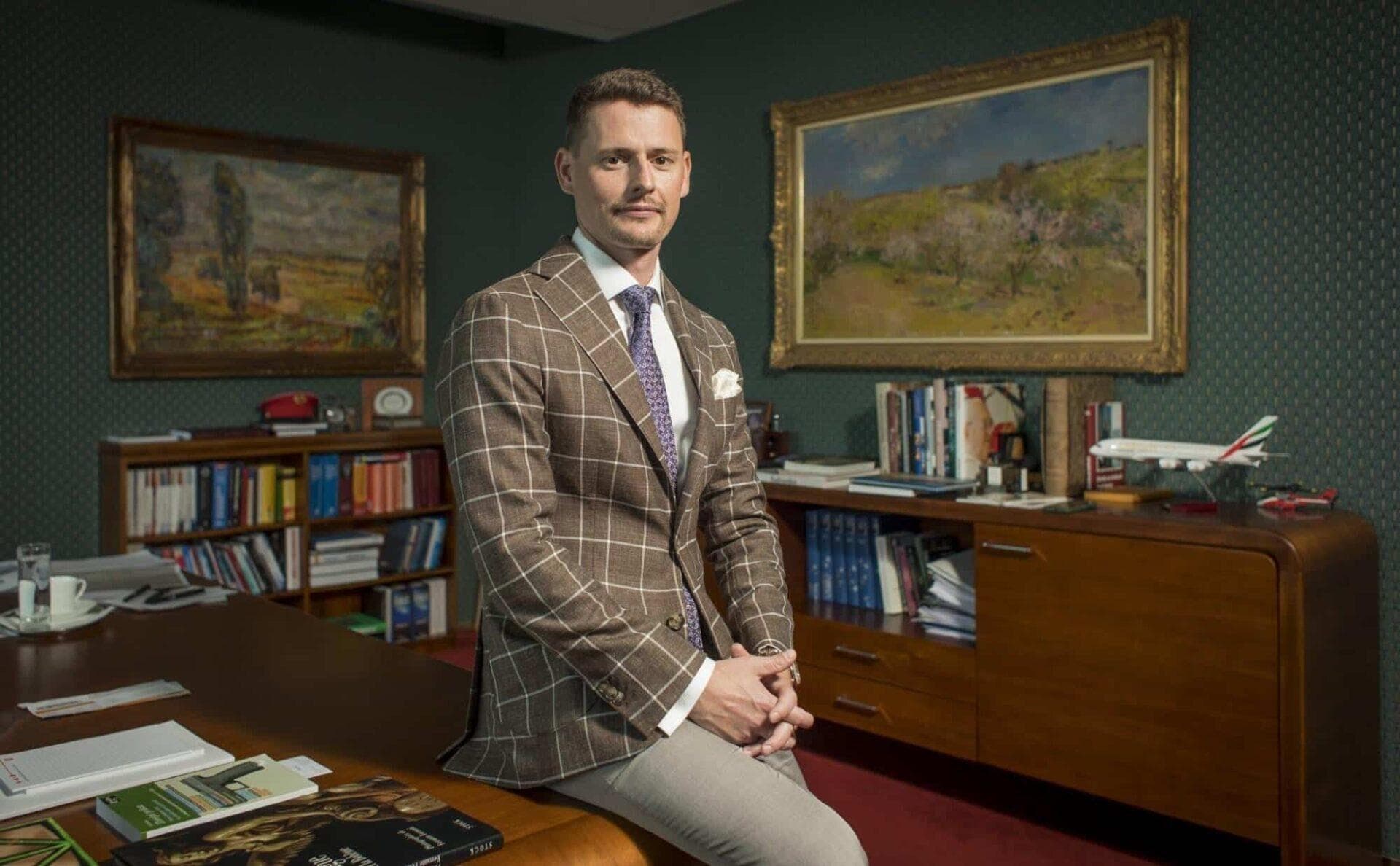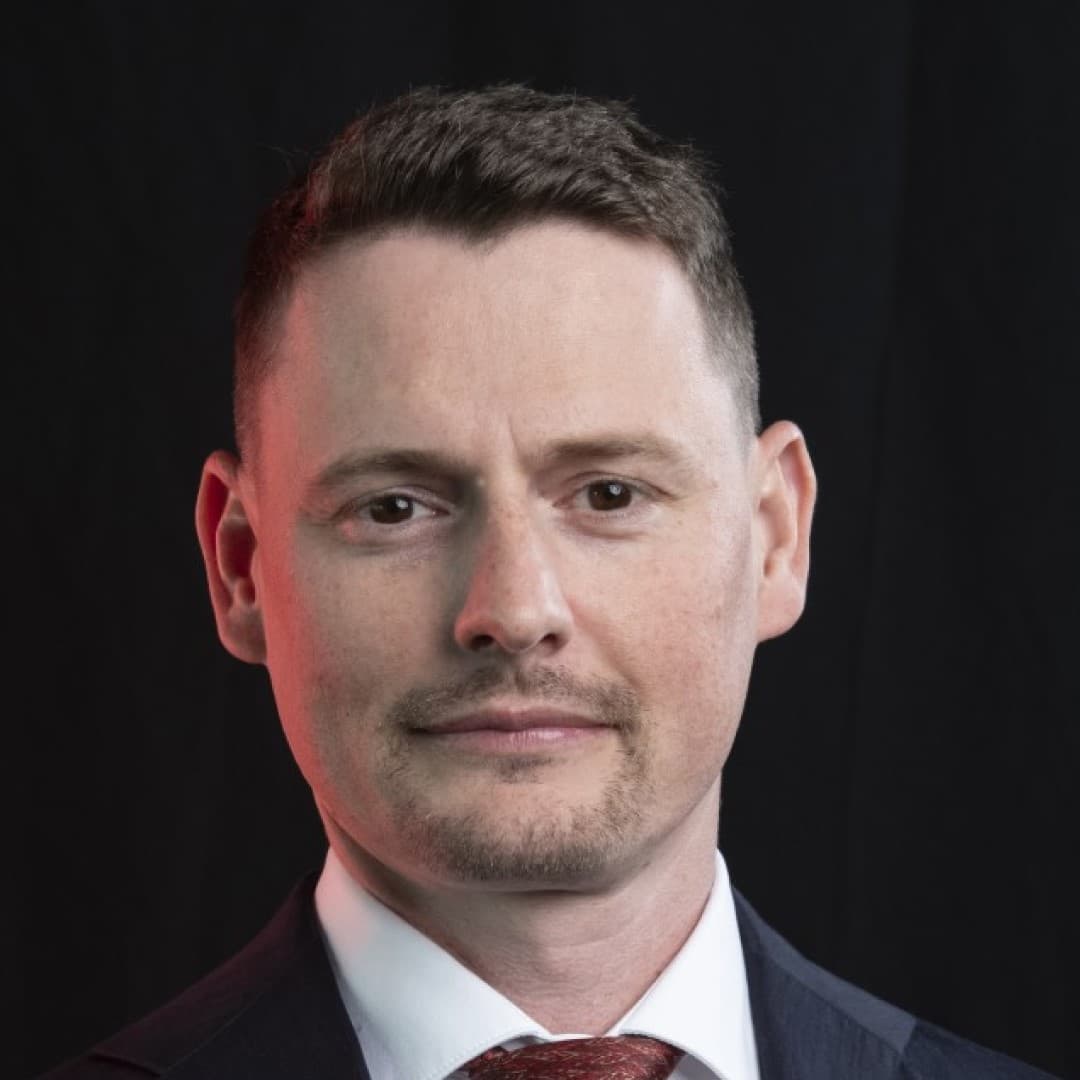How to avoid family disputes over property
24 \ 06 \ 2024

In the future, everyone for whom it pays off will have a trust fund, is convinced Jakub Hollmann from CCS Premium Trust.
The trust fund is no longer an exotic novelty in the Czech legal system, but an increasingly popular way to organize one’s assets. According to Jakub Hollmann, Chairman of the Board of Trustees at CCS Premium Trust and a partner at the law firm Portos, people are increasingly viewing their property as something that needs to be managed, which leads them to seek structures that allow them to organize and preserve wealth for future generations. In this respect, trust funds are becoming one of the top choices.
The trust fund as a legal institution celebrated ten years in the Czech legal system this year with the enactment of the new Civil Code. How well has it established itself?
It’s true that it has been ten years since its introduction into the legal system, but in practice, it only became functional around 2016, as tax law amendments were still being resolved, enabling trust funds to operate from a tax perspective on par with any other corporate holding structure. In terms of establishment, it is now at a very high level, and each year we see further development. People are increasingly viewing their assets as something that needs management, which leads them to seek tools that allow them to organize and preserve their wealth for future generations. Trust funds are becoming one of the main favorites in this regard.
What has been the trend in the popularity of trust funds? Has it been a steady rise, or was the growth slow at first and then saw a major increase?
I’d divide it into two phases – before COVID and after COVID, which was truly a milestone. Before the pandemic, trust funds attracted pioneers who either knew the concept from abroad or actively researched it themselves and realized it suited their needs. At that time, it was not a widely used instrument in practice. The big leap came during the pandemic, when issues surrounding property came to the forefront and more people began to explore how to manage their assets effectively, which led them to trust funds and similar entities such as endowment funds or foreign alternatives. Since then, their popularity has been growing sharply.
Can you quantify how many trust funds existed before COVID and how many there are now?
Before COVID, the number was around 2,000. Today, we’re at approximately 6,500.
In American films, such a fund is typically set up by an elderly wealthy person so their grandchildren have the means to study, but without the freedom to squander the money. Is this a common use case in the Czech Republic as well?
That’s one of the possible setups for how trusts can be established and function here. The main reason trust funds are established today is that the assets placed into the trust are not subject to inheritance proceedings. It’s a way to avoid family disputes over property, which was one of the main reasons trust funds were first created and continue to be used abroad. A second reason, especially abroad, is tax-related, as many Western countries have inheritance and gift taxes, which we do not have in the Czech Republic, so this advantage doesn't apply here. A secondary motivation for establishing a trust is the desire to keep wealth within the family. In practice, another benefit is that liability is limited with respect to assets placed in a trust, which is particularly useful for founders operating in riskier industries.
What kind of person typically sets up a trust fund in the Czech Republic?
The profile of the typical client has changed significantly over the past ten years. In the early years, the stereotype was that of a seventy-something entrepreneur wrapping up a successful business. Today, trust fund founders are mostly in their forties and fifties, although there are both older and younger clients. Generally, I’d say there are two main types of founders: the first are people who have exited a business and want to use the proceeds to gradually and under pre-defined conditions provide for future generations of their family. The second group consists of active entrepreneurs, typically in their forties to fifties, who are expanding their portfolios by acquiring new companies. These clients establish trust funds to protect their current assets in case a part of their business fails, and to ensure their family’s financial security if something unexpected happens to them.
Are we only talking about ultra-wealthy founders with hundreds of millions or even billions in assets?
Not at all. We advise clients to start considering this form of asset structuring if their consolidated wealth exceeds one million euros. While this may sound like a high number at first glance, it’s roughly the value of two average apartments in the center of Prague today. It’s far from an unattainable amount. The second criterion to consider is the number of potential heirs and whether there’s a risk of conflict among them. That, too, can justify the establishment of a trust.
What does effective trust fund management look like? What happens if none of the heirs is interested in actively managing the assets? Is this where professional trustees come into play?
There’s still a lot of room in the Czech Republic to draw inspiration from abroad. Unlike Liechtenstein, where family foundations are required to have professional management, this is not mandatory here. In the Czech context, the founder or one of the beneficiaries can manage the trust’s assets themselves. However, it’s crucial that the trust statute, which sets the rules for how the fund operates, is drafted very precisely to ensure that whoever takes over management has clear guidelines on how to handle the assets. Yes, there’s significant space for advisory services of various kinds—this is standard practice abroad, but something we’re not yet as accustomed to here. In the Czech Republic, it’s the generation in their thirties and forties who are beginning to view wealth differently from previous generations. We are now in the era of first-generation founders, and it will take two to three more generations before this approach to wealth management becomes standard, as it is in the West.
So in other words, in the Czech Republic I can have a trust fund both set up and managed by professionals, or do it all myself?
Yes, but I would still emphasize that experience in establishing trust funds is essential. We’ve been building these structures from the very beginning, drawing on years of experience from abroad. It’s not just about having a lawyer set up a trust fund—that’s a craft in itself—but also about ensuring that the lawyer truly understands what they are doing, rather than relying on cookie-cutter templates that can’t adapt to specific needs and situations.
How many trust funds do you think will be established in the Czech Republic in the future?
I’m convinced that in the future, practically everyone for whom it makes sense will have a trust fund. Just look abroad, where this institution has existed for generations and is viewed as a completely natural way to manage family wealth—something that will eventually happen here too. In a previous interview, I mentioned that we could reach 30,000 trust funds within ten years, and that still holds true. Beyond that, the number will only continue to grow. The real leap happened during the pandemic when property-related concerns became more pressing, and more people began looking into how to manage their wealth effectively. Since then, the popularity of trust funds has been steadily rising. As mentioned earlier, we still have a lot of room to draw inspiration from countries like Liechtenstein, where professional management is standard. While this isn’t mandatory in the Czech Republic, the option for founders or beneficiaries to manage the trust themselves remains open.
The interview was created in collaboration with CCS Premium Trust.
The article was published in Euro magazine (Issue: 25/26, June 24, 2024)




